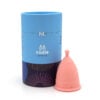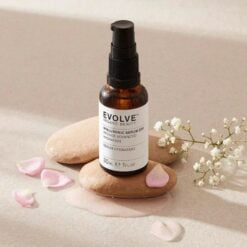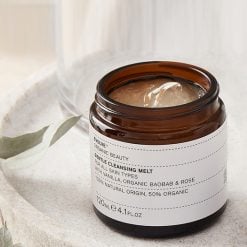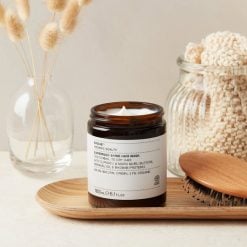Beauty News, Evolve Beauty
The importance of Sleep
Stressors that the modern lifestyle can put us under can have a significant impact on many aspects of our daily routines. These stressors may affect our sleeping patterns, which means we might not be getting the proper amount of rest to maintain our health.
Why sleep is important
As crucial to your health as consistent exercise and a healthy diet is sleep. Your body actually repairs itself and restores chemical balance as you sleep. But a lot of us have a tendency to overlook it. It’s imperative that you make an effort to understand the significance of sleep and the impact it can have on your overall health, including your skin, hair, and nails.
The advantages of getting a good night’s sleep are numerous. However, the following are some of the most convincing arguments against taking sleep for granted:
- increased productivity and attention.
- Heart disease risk is decreased.
- Can aid in avoiding depression.
- Improved immunological function.
What effect can sleep deprivation have on your body and you?
You are undoubtedly well aware of how a poor night’s sleep may leave you feeling cranky and exhausted. However, the reality is that getting too little sleep can have a variety of negative effects on your health.
Memory Problems
Your brain can create connections while you’re sleeping that can aid in processing and memory retention of new knowledge. This capacity can be hampered by sleep deprivation, which also has an adverse effect on both short- and long-term memory.
Mood Change
Negative emotions may be alleviated by fatigue, which also increases irritability and emotionality. If you don’t get enough sleep frequently, these moods might swiftly result in feelings like
Risk of Diabetis
Your body’s ability to release insulin, a hormone that lowers blood sugar, might be impacted by lack of sleep. People who have trouble falling asleep frequently have higher blood sugar levels and are more likely to develop type 2 diabetes.
Poor skin
Your cortisol levels may rise if you don’t get enough sleep or receive less than you require. Inflammation brought on by cortisol causes the breakdown of skin protein.
Since these proteins frequently keep skin looking “glowing,” elevated cortisol levels can result in dull skin.
Dry Skin
If you are experiencing lower levels of sleep then you may be experiencing a skin imbalance. Lack of sleep leads to your lower PH levels in the skin – causing an imbalance. This can cause the skin to stop producing the amount of moisture needed to hydrate the skin, eventually leading to drier skin.
Eyes
Do you know why black circles beneath the eyes or puffiness appear after a late night? The majority of us are accustomed to feverishly attempting to address these issues. Your blood vessels enlarge when you’re weary, making your dark circles appear more pronounced. Lack of sleep can also contribute to a poor water balance, which can give the impression of “puffy” eyes.
Ageing
Your body experiences stress as a direct result of sleep loss. Your skin’s collagen content and integrity may change as a result. Your skin’s elasticity depends on collagen, so when it is broken down, the skin can become thinner and lose firmness, which can make the indications of aging more obvious.
How to help
Take a vacation from the news of the day. On our phones, televisions, and in the newspapers, we are constantly exposed to news stories, many of which can be considered challenging or unpleasant. These tales might set up our fight-or-flight reactions.These reactions could make us sleep more lightly because they are intended to keep us attentive in case we would need to flee a perilous scenario.
It could be a good idea to try to ignore the news for about an hour before night and instead concentrate on more calming hobbies like reading.
Certain electromagnetic frequencies, such as those produced by cellphones or other electronic gadgets, can sometimes cause people to become sensitive.
Try to set these devices to airplane mode if you think this might be the case for you.
Overall, being comfortable may be the greatest advice. Make sure to reposition your pillows, blankets, or whatever else you need to feel comfortable for the duration of the night before going to bed. Additionally, it is a good time to check the temperature in your room. The ideal temperature for a good night’s sleep is said to be between 18 and 20 degrees Celsius, so if that means opening a window a little or adding a throw to your bed to adjust, go for it!











































 Beauty Products
Beauty Products By Skintype
By Skintype Brands A-Z
Brands A-Z Wellness
Wellness Health / Nutrition
Health / Nutrition